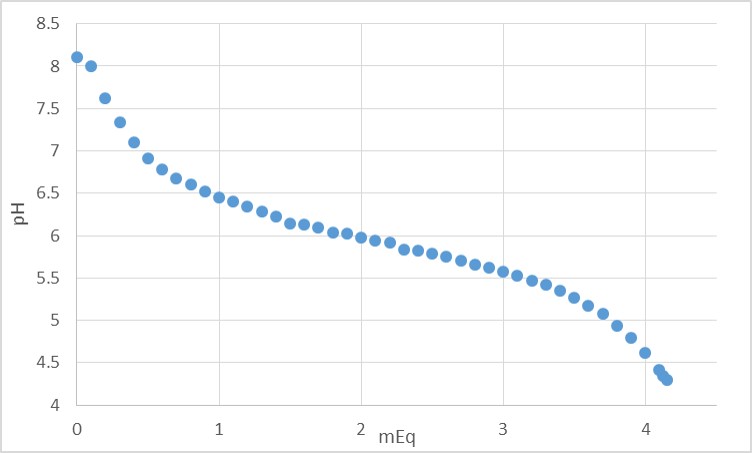So for Hardness testing, how does the following procedure look:
This is indeed the drift of the complexometric test for hardness but there are a few twists.
Take a 100mL room temp water sample and buffer with NaOH to 10.1 pH
Add Eriochrome Black-T indicator (how much?). Sample will turn Red.
The buffer will turn red if there is magnesium present. For this reason the buffer contains complexometrically neutral magnesium/EDTA complex. When added to sample calcium in it preferentially complexes with EDTA releasing the Mg++ which complexes with the indicator to give the red color. As additional EDTA is added during the titration any extra calcium is picked up followed by the Mg++ and then when all the Mg++ is chelated the solution turns blue. So just plain old NaOH isn't a very good buffer for this purpose (it isn't much of a buffer anyway - it's a strong base). Standard Methods for the Analysis of Water and Waste Water give recipes for suitable buffers and you can find them on the web as well.
Titrate with 0.01 M EDTA until sample turns blue
For decent accuracy the EDTA solution must be standardized against a standard strength calcium solution. You can, of course, forgo standardization at the cost of the implied improvement in accuracy.
#mL of EDTA used x 10 = Total Hardness.
Though EDTA is hexadentate one mole of it only apparently chelates 1 mol (2mEq) of calcium or magnesium. Thus a 0.01 M solution is 0.02 N and a mL of it chelates 0.02 mEq. Thus each mL used in the titration of 0.1 L of sample indicates the presence of 0.02/0.1 = 0.2 mEq or 10 ppm as CaCO3 so yes, it looks as if 10 is the right multiplier.
As a consequence of all the above and because there are better indicators that Eriochrome Black T and because we usually want to know not only total hardness but calcium and magnesium hardness individually I think it would be a great deal simpler to buy a kit and let the manufacturer worry about the standardization, the buffer, the indicator(s) and so on.
To get permanent hardness, can I just test a boiled water sample?
No, because boiling does not drop all the temporary hardness. The usual way to get permanent hardness is to subtract the alkalinity from the total hardness. This obviously only works when total hardness is greater than alkalinity. But then when it isn't there is no permanent hardness.


